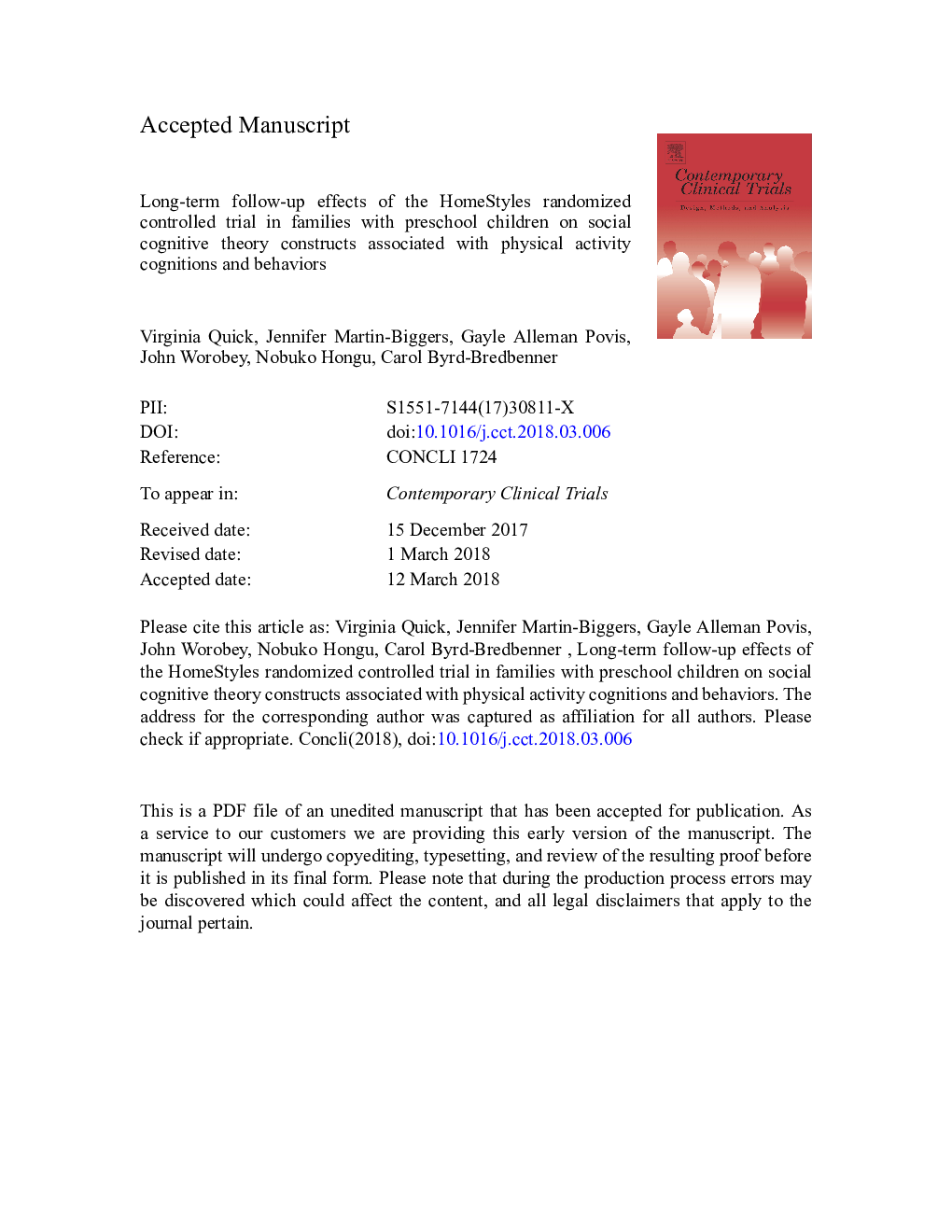| Article ID | Journal | Published Year | Pages | File Type |
|---|---|---|---|---|
| 8757522 | Contemporary Clinical Trials | 2018 | 49 Pages |
Abstract
This study examined long-term follow-up effects of participation in the HomeStyles RCT, using Social Cognitive Theory constructs, on physical activity cognitions, home environment, and lifestyle behavioral practices of families with preschool children (ages 2 to 5â¯years). Parents were systematically randomized to experimental or attention control group at baseline. Those completing all surveys that comprised of valid, reliable measures were the analytic sample (nâ¯=â¯61 experimental, nâ¯=â¯63 control; mean age 32.8â¯Â±â¯5.9SD years). Repeated measures ANCOVA, controlling for prognostic variables (e.g., parent sex) revealed that variables assessing modeling of physical activity for children increased significantly (Pâ¯â¤â¯.01) in both groups with no significant time by group effects. Paired t-tests indicated the experimental group's self-efficacy for keeping children's weight healthy and performing health promoting behaviors increased significantly over time whereas the control group did not but with no significant time by group effects. Self-regulation paired t-test findings indicated that total screentime the experimental group allowed children decreased significantly over time with no significant time by group effect. The value parents placed on physical activity for children increased over time in both groups with a significant time effect. The experimental group over time had significantly greater increases in the availability of physical activity space and supports inside the home than the control group. Improvements noted have the potential to help protect children and parents from excess weight gain, yet findings indicate considerable opportunity for continued improvement as well as elucidation of factors affecting concomitant changes in both study groups.
Related Topics
Health Sciences
Medicine and Dentistry
Medicine and Dentistry (General)
Authors
Virginia Quick, Jennifer Martin-Biggers, Gayle Alleman Povis, John Worobey, Nobuko Hongu, Carol Byrd-Bredbenner,
